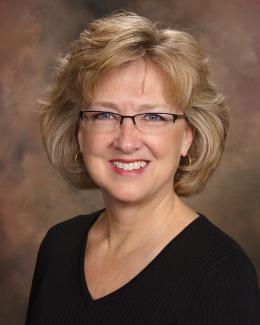NCFR Conference 2022 Update
See all articles from this issue
Just when we thought we were out of the COVID-19 woods, the pandemic took another turn with the Omicron variant, and we witnessed other organizations scrambling back to Zoom and online meetings for their conferences. The best way forward for NCFR at this time is to continue to plan for an in-person conference and be prepared to move online if conditions warrant. Our communication to you will be frequent and frank, and we’ll check in with you along the way through short surveys.
Thank you to those who completed a conference attendance survey in early January. About 33% of survey respondents indicated that they plan to attend regardless of conference format; nearly 20% said they would attend only if the conference were virtual; and about 15% indicated they would attend only if the conference were in person. About 20% were uncertain whether they would attend, identifying concerns related to actual or anticipated restrictions in large-group gatherings and travel as the primary reasons for their uncertainty.
Regardless of conference format, NCFR will have another outstanding annual conference this year and we hope you will make every effort to participate.
Advancing Family Science Initiative Update
NCFR’s Advancing Family Science (AFS) Initiative has created two key resources designed to strengthen the identity, visibility, and perceived value of Family Science: a guide to giving a Family Science elevator pitch called “How to Explain Family Science to Anyone” and the online Toolkit to Promote Family Science.
If you have ever struggled to explain the essence of Family Science to colleagues across campus, policymakers, or family members, you’ll find the “How to Explain Family Science to Anyone” resource helpful. This step-by-step guide takes you through the process of constructing a persuasive and concise “pitch” that is geared toward your audience, easy to understand, and memorable. The materials can be used by individuals or in classroom settings and can be easily adapted to pertain to your area of research or to pitch yourself professionally in a job interview. Look for more information on this helpful tool in NCFR communications and share your Family Science elevator pitch on social media—use the hashtag #FamilyScience or tag NCFR in your post.
Over the past 18 months, more than 75 graphics, posters, articles, and more have been created to promote the identity of Family Science. They have been collected into the online Toolkit to Promote Family Science, and you can download and use any of the resources for free. Files in various formats allow you to select the resources specific to your needs, including graphics for your web, social media, and print projects; career profiles to share; and links to interactive online resources, including NCFR’s guides to Family Science degree programs and career exploration.
Both new resources were reviewed and are recommended by NCFR members. If you need something that you are not finding, please send us your request or need at ncfr.org/family-science-feedback.
One of the next projects on the agenda for the AFS Initiative is to explore with members the relationship between Family Science and human development. Over the course of this initiative, questions have arisen about how the two academic disciplines overlap—particularly given the prevalence of the name “Human Development and Family Science” for academic programs—and how NCFR should articulate or represent the connection between the two. In addition, work will continue on career resources, standards for Family Science degree programs, and the creation of resources explaining Family Science to practitioner employers.
Gratitude for the Community NCFR Creates
During these trying times, I am mindful of the many ways NCFR members contribute to the well-being of our shared community. Every day, members share their knowledge and wisdom in myriad ways, such as volunteering through leadership positions in NCFR, presenting webinars, serving on editor search committees, submitting manuscripts to NCFR publications, and reviewing those manuscripts, just to name a few. It is also greatly appreciated when members take the time to provide feedback on NCFR programming or suggest new ways the NCFR community can enhance its support of one another. Your efforts don’t go unnoticed. From various conversations over the years, I have witnessed the positive influence many of you have had upon your colleagues. I have also seen firsthand how so many of you step forward—time and time again—to support NCFR in its mission to serve families around the world. Whether you are new to NCFR or you’ve been with us for a while, please know that your involvement matters, and keeps NCFR moving forward. NCFR doesn’t belong to just one person but is a place for all its members. Thank you to everyone who contributes in these ways to the NCFR community.


